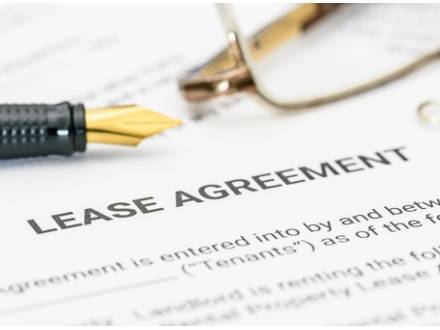Naperville, IL 60563
Do I Need Legal Assistance for a Leaseback Agreement?
 Buying or selling commercial property can be stressful under the best circumstances. When a business needs an influx of cash, one option may be a leaseback agreement. Unlike residential leaseback agreements, commercial leaseback agreements can be used for a long duration, allowing a business owner to continue to use the property while no longer owning it. If you believe a leaseback agreement can potentially remove some of the stress of keeping your business profitable, speak to an experienced Oak Brook, IL real estate lawyer from Lindell & Tessitore, P.C..
Buying or selling commercial property can be stressful under the best circumstances. When a business needs an influx of cash, one option may be a leaseback agreement. Unlike residential leaseback agreements, commercial leaseback agreements can be used for a long duration, allowing a business owner to continue to use the property while no longer owning it. If you believe a leaseback agreement can potentially remove some of the stress of keeping your business profitable, speak to an experienced Oak Brook, IL real estate lawyer from Lindell & Tessitore, P.C..
What Are the Basics of a Commercial Leaseback Agreement?
When real estate that is owned by the seller is sold to another person or entity and then leased back to the first owner for a long duration, this is known as a commercial leaseback agreement. Companies often use leasebacks when they need the cash invested in the property for other purposes but still need the property as an asset to operate their business.
Sale-leasebacks can also be used for large, expensive equipment and are commonly used in transportation industries. A commercial leaseback agreement can be thought of as an alternative method of raising capital for business operating expenses. While a loan must be repaid – and also shows up as a debt on a company’s balance sheet – a leaseback allows the liabilities to go down and current assets to go up.
How Does a Buyer Benefit from a Commercial Leaseback Agreement?
The buyer who purchases the commercial property and then leases it back to the original owner can benefit from a stable, long-term lease from a tenant who has a proven operational history. The buyer can negotiate beneficial lease terms and generally receives a good return on investment. If the average rental value decreases, the seller/tenant must still pay the agreed-upon rental amount. The buyer/landlord may also gain certain tax benefits from depreciation, along with investment tax credits when available.
Additional Benefits of a Leaseback Agreement for the Seller/Tenant
Since the seller of the property is now a tenant, there may be additional benefits, including:
-
The business owner (seller/tenant) can expand the business while avoiding a long-term loan.
-
Rent is often less than the monthly mortgage amount for a commercial property.
-
Rent is usually 100 percent deductible against a company’s taxable income.
-
The seller/tenant retains control of how the property is used and maintained.
-
In a volatile real estate market, the seller’s risks of owning the property are minimized.
Potential Negative Aspects of a Commercial Leaseback Agreement
One of the obvious risks for the seller/tenant is losing ownership of the property. The seller/tenant is now locked into a lease, which could end up being more costly over the course of a decade or more while having no equity in the property. The seller/tenant could also end up paying capital gains taxes, depending on the value of the property when originally purchased, compared to the value of the property and the price at which it is sold.
The buyer of the property risks the seller’s financial conditions and business prospects taking a downturn, with a potential lease default and the property's value going down over time. If the seller/tenant defaults on the leaseback agreement, the buyer will be forced to either renegotiate the lease or evict the seller/tenant and find a new one at a similarly profitable rate.
Leaseback agreements usually have language requiring the seller/tenant to pay all real estate taxes, maintenance, and building insurance on the property in addition to such costs as utilities. This could potentially be a headache for the buyer/landlord should the seller/tenant let the insurance lapse, fail to pay property taxes (which could result in a lien on the property), or fail to keep the property well-maintained.
Contact a DuPage County, IL Real Estate Lawyer
If you are considering a commercial leaseback agreement, it is extremely important that you have an experienced Naperville, IL real estate attorney from Lindell & Tessitore, P.C. involved in the transaction. Leaseback agreements can be complex and have many issues that must be addressed. Attorney Lindell has an advanced real estate degree, while Attorney Tessitore represents both borrowers and lenders, making our firm a good choice for real estate transactions. Call 630-778-3818 to schedule an initial attorney meeting.




